Immersive Arts Experiences That Can Reach All Arizona Students
Act One’s mission is to provide meaningful arts experiences that enhance the academic and creative potential of children and to engage families in Arizona. Research shows that when students are involved in the arts, they make gains in math, reading, cognitive ability, critical thinking, and verbal and motor skills. Arts learning can also improve motivation, concentration, confidence, and teamwork. Act One provides economically disadvantaged K-12 students who attend Title I schools in Pima, Maricopa, and Pinal counties the opportunity to experience arts performances and museum exhibits as part of their education through school field trips.
In 2019 the Act One Board began to look for innovative ways to reach children throughout Arizona, especially those in rural and tribal communities beyond the 75-mile radius of in-person field trips. Art in schools helps close the equity gap that has left low-income students behind. Affluent children are often exposed to the arts, whether or not their schools provide them, while low-income children are not. Arts education levels the playing field – and this is where Act One can make a significant difference.
Enter Virtual Reality (VR)—the means to provide an immersive arts experience to all children throughout the state. After extensive research and planning, Act One partnered with experts in technology to develop the hardware, software and curriculum that can deliver a new immersive arts experience that is relatable to kids in Arizona. With Virtual Reality, geography is no longer a barrier to access.
Dr. Beth Maloney joined Act One as Director of Arts Education to oversee the development of the Virtual Reality Field Trips. Beth, who had a 20-year career in teaching before joining Act One, says, “VR is a human experience. It’s technology, but it really isn’t. It’s such an immersive experience that your reality changes when you put that headset on. We can tell kids stories. We can take them places they would never get to see. We can give these kids experiences that would be difficult or impossible without VR.”
The first VR Field Trip produced features Sentrock, a Mexican-American muralist originally from Arizona, whose art is described as “presenting undertones of hope, freedom and expression.” This field trip also features Las Azaleas, a Latina-led musical group from Tucson. Beth comments, “We want to have the virtual field trips grounded in areas the kids know, but show them a greater world, where people just like them went on to express themselves through art.”
Beth continues, “The students will actually use more of their senses in a VR world versus a traditional field trip. There are learning style similarities between a traditional arts experience and VR, but you can go deeper in VR. In addition, we have included accessibility measures that will make this opportunity available to so many more kids, for example, subtitles if you’re not an English speaker, and volume level and noise adjustment that can be tailored to each student.”
Beginning in the 2021-22 school year, Virtual Reality Field Trips provided by Act One’s VR Specialists will be available to 5th grade through 12th grade classrooms throughout Arizona. The hour-long classroom program breaks up the time in the headset with guided questions and discussion among the students and teachers, and students sharing their experience with the whole class.
Beth points out, “COVID hit us really hard, with both schools and arts partners shut down. Developing the VR Field Trip became something we could work on. And as we all deal with the effects of COVID, VR gives us the opportunity to visit kids where they are, with less opportunity for contamination. If the school doesn’t want to go on field trip, they may be more comfortable with our specialists coming to do a VR visit.”
The future for Act One is full of promise and learning. Beth says, “We knew from the research that VR has been shown to increase retention rates which is great for academic learning. VR is engaging to students and holds their concentration longer, again, great for academic learning. The bonus is that in recent studies, VR has been proven to build empathy in people. We can teach kids to walk a mile in someone’s shoes, but with VR, we can immerse them in walking in someone else’s shoes. Studies are coming out now to show that VR actually enhances the mood of participants; not only does it enhance feelings of positivity, it decreases negative feelings.”
This initiative’s long-term impact includes that Act One will be adding to the body of research on VR. There is currently no research on VR and the arts. Act One will be producing and sharing research that other organizations will be able to use to continue to improve the educational experience.
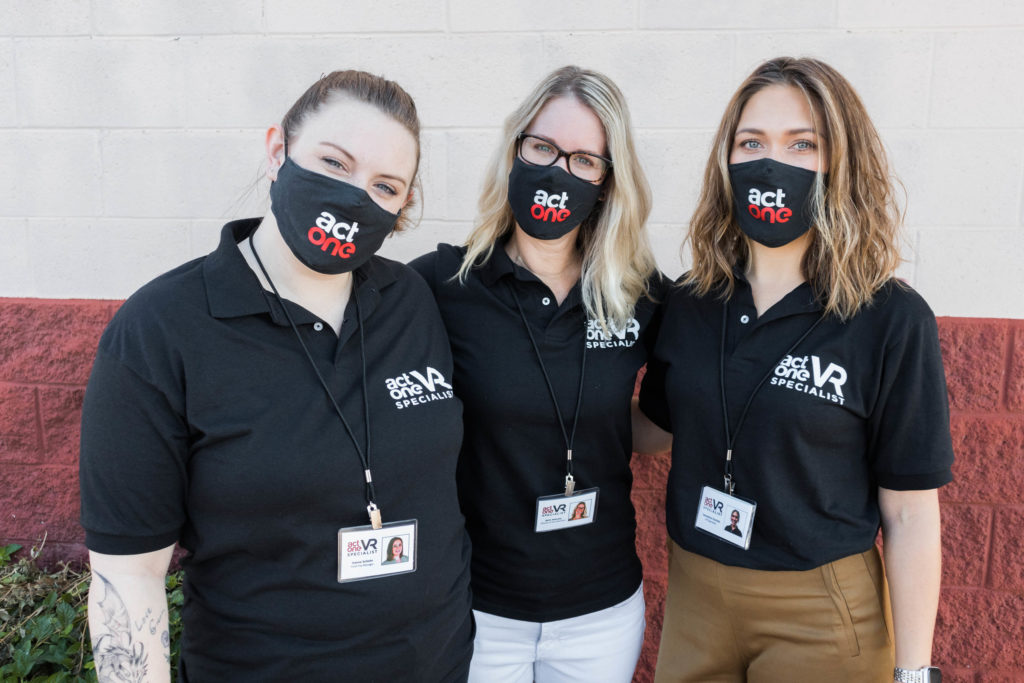
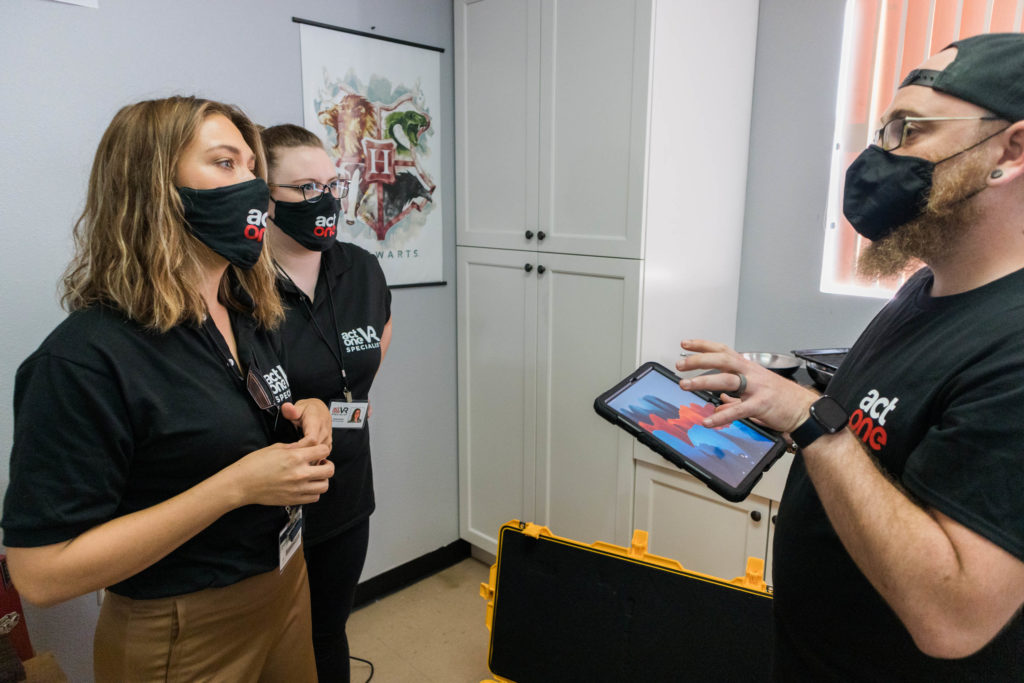
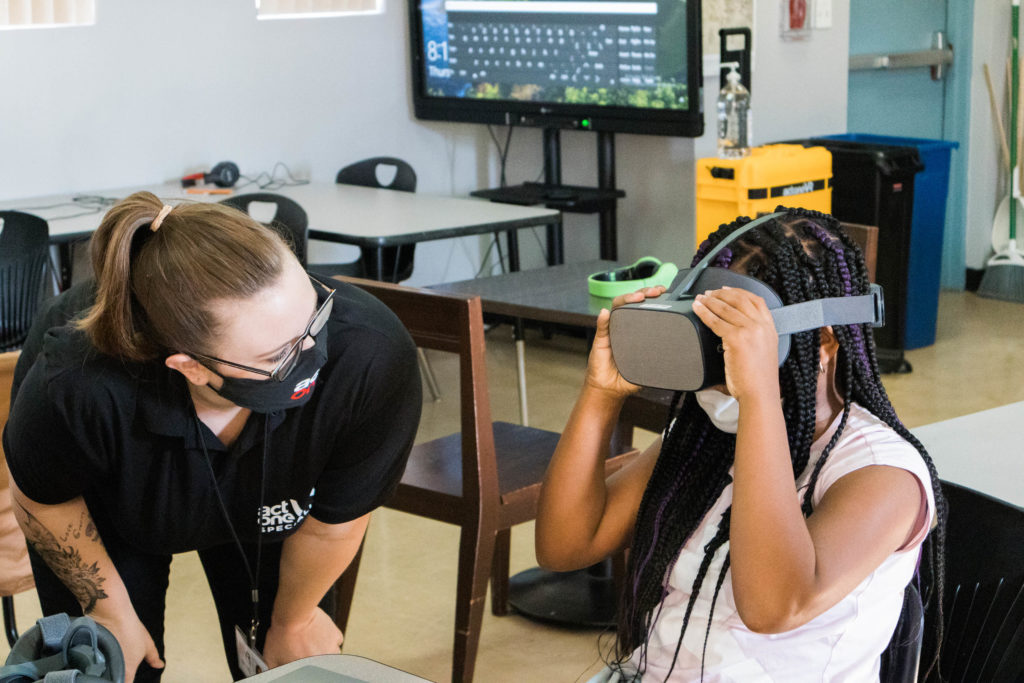
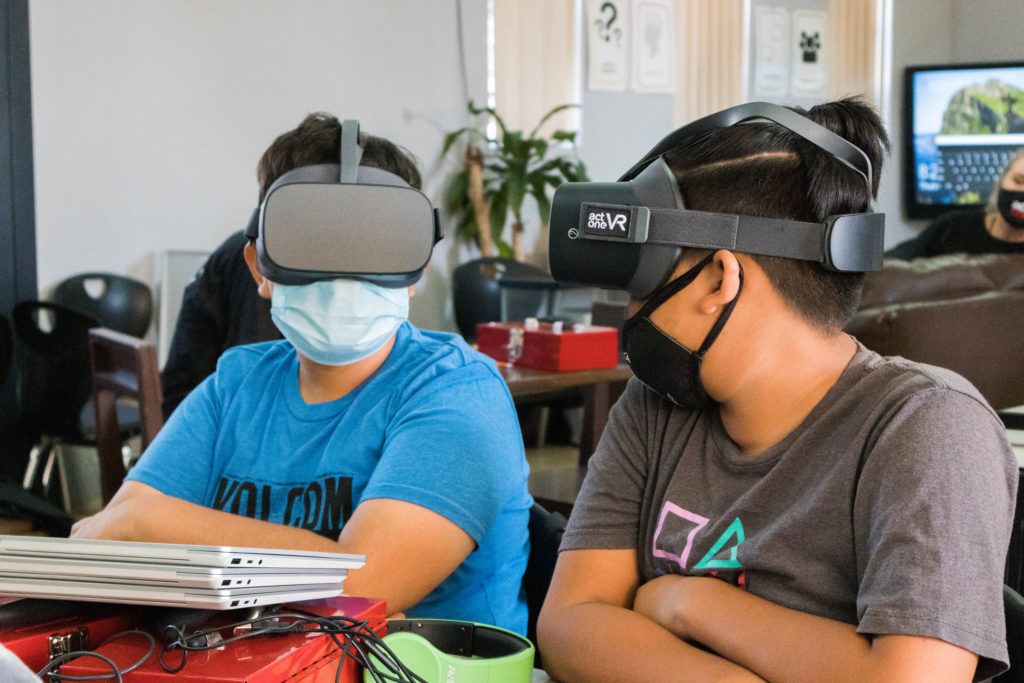
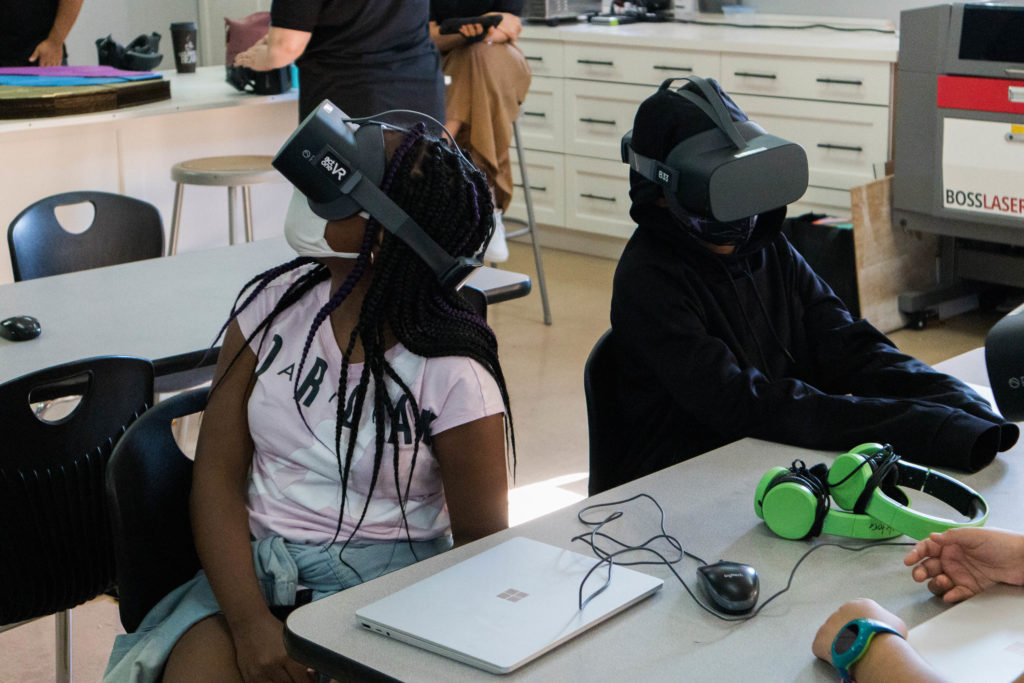
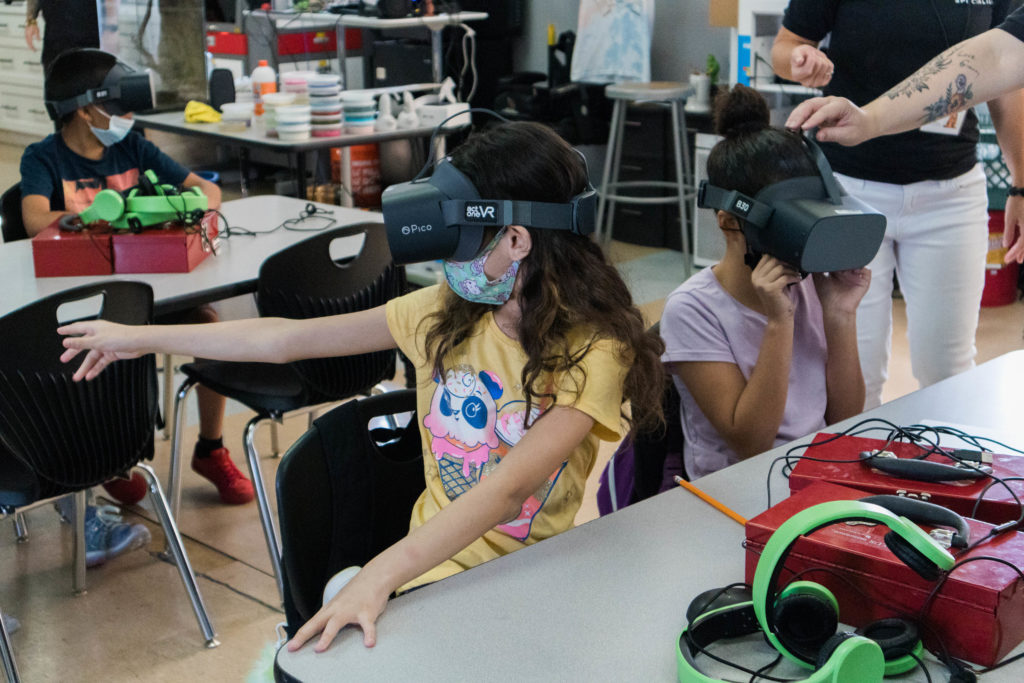
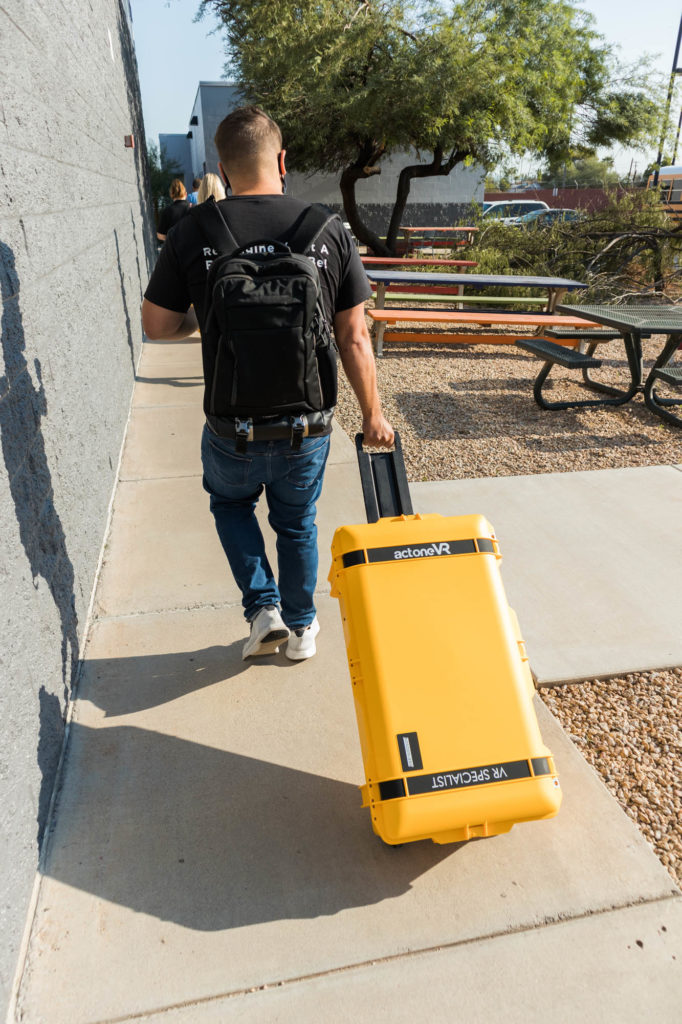
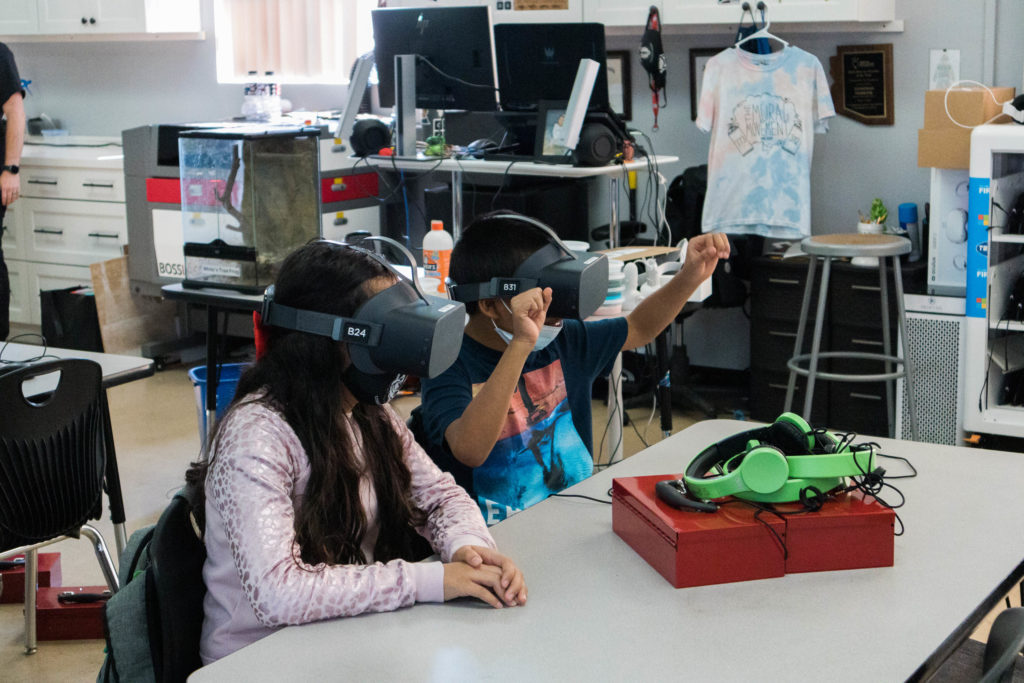
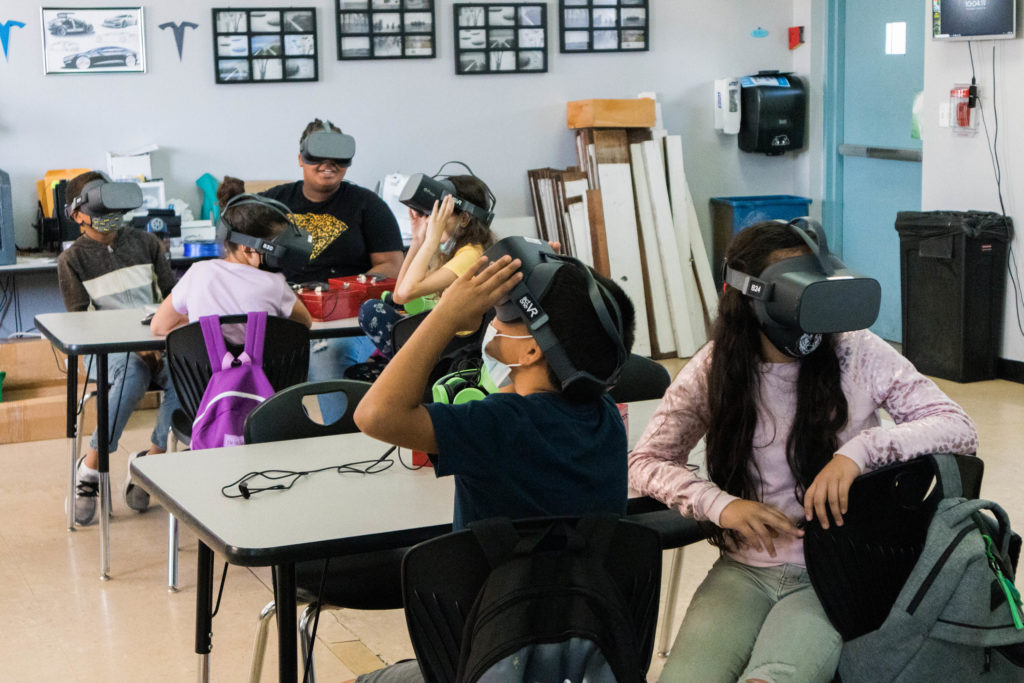
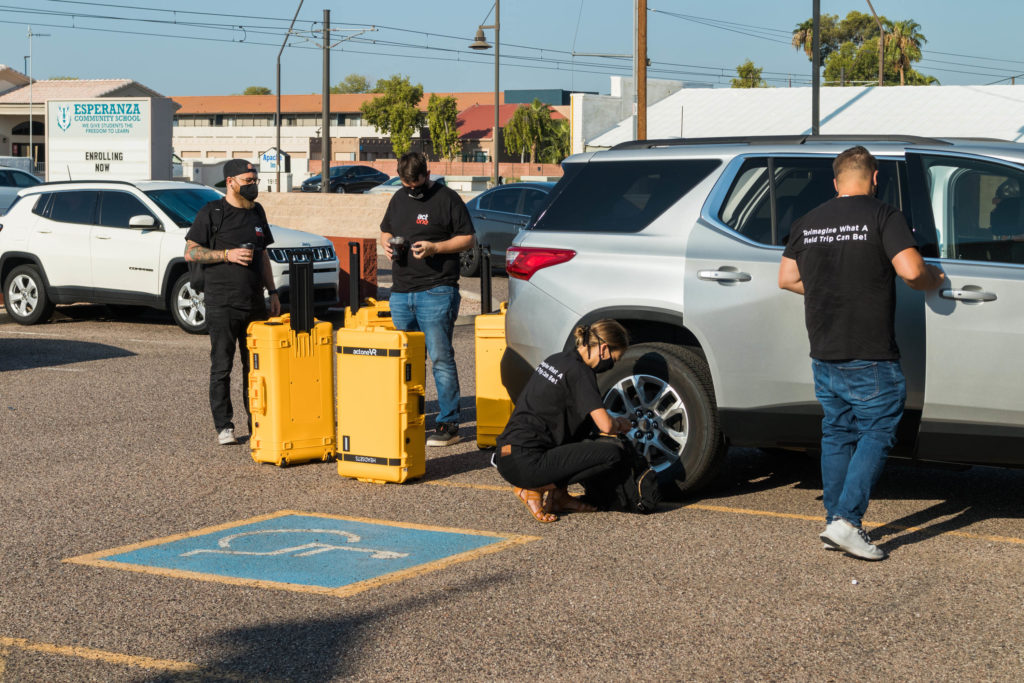
Now, with at least a third of the world’s population under some form of lockdown, coronavirus has forced widespread behavioral change. There has never been a greater need for technologies that can help us enhance limited physical environments. With virtual reality hardware advancing rapidly, the opportunity is ripe for transformative new applications to fill this need.
Forbes Magazine, May 21, 2020